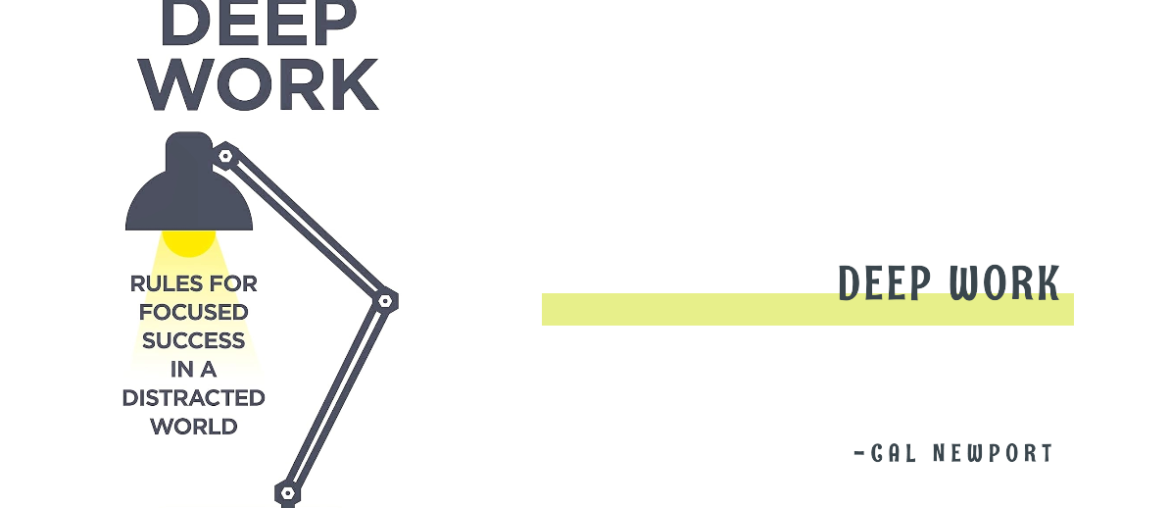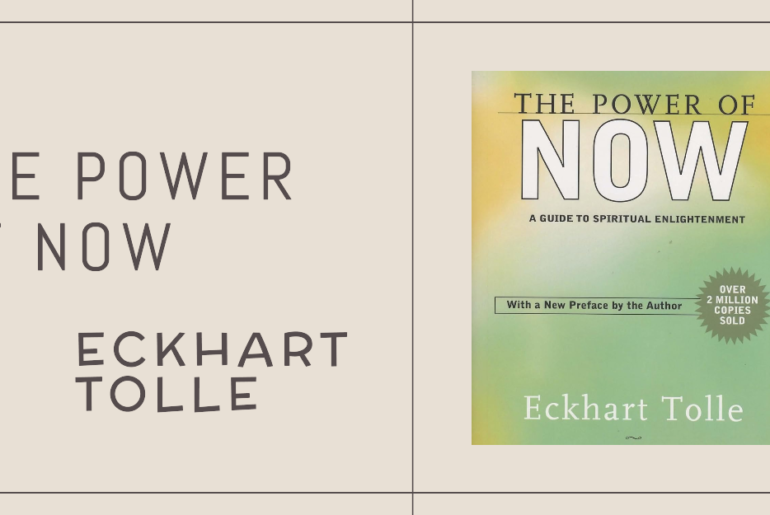Work performed in a state of intense focus by avoiding any form of distraction such that one pushes their cognitive capabilities to their limits is deep work. This terminology of deep work isn’t scientific. But it does clearly point to something we all already knew, and have experienced.
We can also define its counterpart term called shallow work. Shallow work is non-cognitively demanding, logistical-style task and that can be performed while distracted. Any multitasking work falls in this category.
To mark the clear difference between the deep and shallow types of work. Everyone will concur that deep work produces new values, improvement, and hard-to-replicate work while shallow work does not.
Author Cal Newport explains that all the influential figures from present or past history were able to produce great work because of their investment in the deep work state.
Everyone desires to be a superstar in their field of work. We all crave that sweet success and spend weeks, months, and years chasing it. The ability to practice more of our deep work state can just make our journey more accessible.
Importance of Deep Workers in our Economy
In our new economy, shallow or repetitive work is slowly taken over by intelligent machines. The advantage of this transformation is saving time and money.
Cal Newport says that only three groups of people will have a particular advantage: those who can work well and creatively with intelligent machines, those who are the best at what they do, and those who will have access to large capital.
To be in the first two groups requires mastering hard skills to stand ahead of the competition. And because these technologies(market demand) change rapidly, this process of mastering hard things never ends. You have to do it quickly, again and again.
So, ideally one requires to be a learning machine and always ready for challenges. To achieve this state, one of the critical skills required to put intense concentration for a long period of time. That is, to perform more deep work to produce meaningful work.
How does deep work make us learn hard things quickly?
The Neuroscientist believes the answer includes Myelin. It is a layer of fatty tissue that grows around neurons, acting like an insulator that allows the cells to fire faster and cleaner.

Any skills whether being intellectual or physical eventually reduce down to brain circuits. The better you get in a skill, develop more myelin around the relevant neurons. As a result, allowing the corresponding circuit to fire more effortlessly and effectively. In other words, to be great at something is to have well-myelinated neurons.
Thus, it became important to focus intensely on the task at hand while avoiding distraction. It is the only way to isolate the relevant neural circuit enough to trigger useful myelination.
Elite Level Performance
There are some people, who seem to be on another level with their work. They can produce High-Quality work in a very short time and make difficult things looks easy. We can call them as elite level performer or superstar in their field.
How are they able to do that? Author Cal Newport put forward a formula to unfold the secret to this question,

It is somewhat obvious to understand why and how this formula works. For instance, preparing well for a big final exam requires some heavy lifting studying. But, if we tend to regularly distract our mind through social media or something else. It will indeed take a longer time to complete the preparation.
Here we should also discuss the common term multitasking. Juggling more than one task at a time does have a cost. As one switches from one task to another, the mind readily does not make the complete switch. There is some residue left in the mind still working from the previous task even after the switch. As a result, it worsens the performance as we switch more.
To produce work at peak level, it is required to put extended periods with full concentration on a single task.
Rules to Improve Deep Work State
A study conducted by psychologists Hofmann and Baumeister, shows that people are constantly fighting against their desire all day. And in 50% of cases, it is the desires which often win.
In other words, people successfully resist particularly addictive distractions only around half the time. To win i.e. to commit ourselves to deep work without distraction, requires willpower.
The study also states that we have only limited use of willpower for a day. Once we try to restrain ourselves, we utilize a finite amount of willpower. Developing personal rules which gradually form habits is the best method to practice restraint while using minimum willpower.
Cal has mentioned numerous rules with well-suited examples to improve deep work. Some rules are explained briefly in the upcoming paragraphs:
1. Routines and Rituals
Some feel the best to tackle down demanding work in the morning, while some prefer late at night. Creating routines and rituals for going deep into work can do miracles. For example, I have developed a habit to study in the early morning. And, when the sun is up then around 7 am, I go for a walk. Feeling more energetic and fresh after the walk, I put in some more hours of studying till I reach my limit.
In the day, I choose all the shallow work that needed to be completed. And after dinner, I go to sleep early so that I can repeat the work routine the next day.
Proper scheduling of your time based on the natural tendency to work with focus is great. It is a smart way to get things done with the minimum usage of willpower.
2. Have Real Breaks
The ability to put a laser focus on your work is a learnable skill. To master it, we have to train our brain such that it rewires itself to do so naturally. Hence, it can easily overcome any sort of distraction craving.
To train effectively, one has to learn to take a break from distraction. The core idea is to willingly take a break and get disconnected but not try to run away from it. A distracted mind is unable to focus not because of any distracting activities. Rather it is this constant switching from focus work to distraction, which rewires our brain to constantly seek novelty.
The slightest hit of boredom or high cognitive challenge triggers this craving to seek novelty, hence looking for a distraction. It is obvious that constant switching weakens your brain muscles to focus for an extended time.
A practical way of having a real break from the focus work is to — schedule a 30-minute time block for going online(or allow distraction) after every 3-4 hours of focused work. It is similar to performing some physical workout and then having a rest. Your constant resistance to distraction, while you are working, will gradually strengthen your brain. And hence improve your ability to focus on work.
Also read: Decode Your Study Breaks
3. Online Tools
Internet is a revolutionary technology in our hands. A seemingly impossible task, like sending an important message to a faraway country, from the past century can happen within minutes now. There is no exaggeration to say that online tools have made our lives a lot easier.
But with the abundance of these encroaching technology in our lives; we are easily recognizing that these tools also fragment our time and reduce our ability to concentrate. One can provide a very long list of benefits of using any form of the online tool, whether being a social networking site, infotainment site, entertainment site, or anything else. However, under the shadow of all the boons from it, there are negative points that we tend to ignore.
If we really want to use a tool (online sites), attempt to weigh its pros against its cons. If the negatives overcome the positive side of tools, it is sensible to stop using them.
Allow me to explain this with a hypothetical example. Deepika is an ambitious student and recently graduated from a prestigious institute with decent grades. Her next goal is to crack the highly competitive examination to land in a top national institute for higher studies. To complete all her preparation, she has only 3 months of time in hand.
Her usage of online tools, especially social networks, was extensive in her undergraduate days. As it is very essential to be connected with classmates and friends to fully enjoy college life.
But now her new goal is to successfully crack the competitive examination in just 3 months; she has to cull down her social networking usage. For solid preparation, social sites pose more negative than positive. Working with an intense focus can easily be crippled with regular online ping from social sites.
The question is not there that one should eliminate using Facebook, YouTube, Twitter, or anything else. Instead, we need to ask ourselves that do these tools provide ample benefits to pursue our personal or professional goals.
4. Reduce your shallow work
When given limited time to complete a job, reducing shallow work becomes as important as working deeply. Take note of the fact that a trained mind can not extend more than 4 hours of daily deep work. Some shallow work like reading/replying to an email or attending meetings is unavoidable and takes up our time.
In order to use the work time efficiently, one has to schedule their deep work with necessary shallow work.
To do this, Cal suggests maintaining structured work schedules; where one has to write the work blocks against the time required to complete them. The work mentioned in the schedule has to be general and kind of repetitive every week. A sample illustration is shown below:

Don’t despair, if you fail to precisely follow the work schedules. The real motive is not to create an ideal schedule; rather to maintain this all the time and develop the attitude to use our time systematically. Without any such proper structure, it’s easy to fall into the depth of shallow work and produce low-value work.
5. Daily Shutdown
Another advantage to push ourselves into limited work-time is that we began to value our time even more. It is also important to perform a ritual of completely shut down from the work at the end of the day.
Author Cal Newport does not work after 5:30 pm. Despite that, he still manages to perform his duties well as a full-time professor, doing researches and writing the draft of the book. Cal explains that long dedicated time to work generally does not yield high-value results. Even if it does, an option to save time for yourself is much preferred.
Once you have scheduled your work against the time. It is now required to think backward and plan ‘How do I complete this work before 5:30 pm’. Other than forcing us to use time cautiously; a daily shutdown allows our mind to recover back to its full deep work capacity for the next day. Also, you do get quality time to spend with your family after work.
Conclusion
I’ll live the focused life, because it’s the best kind there is.
Winifred Gallagher
Deep Work is a powerful and incredibly valuable skill. In the present digital age, where people involve themselves in the artificial busyness of emails, instant messages, or online entertainment. To be a loyal disciple of Deep Work, one has to accept uneasiness and get out of the comfort zone.
The great achievers of our generation, whether they are scientists, authors, business-tycoons, or artists. Their work ethics have involved long stretches of focused work. It is obvious as deep work is the only way to produce high-value, hard-to-replicate, and groundbreaking works.
In this book, author Cal Newport has done a commendable job to bring out the essence of deep work in one’s life. I highly recommend this book to anyone who is looking to step up and desire to achieve their professional goals.
Discover more from talkingconcept.com
Subscribe to get the latest posts sent to your email.




